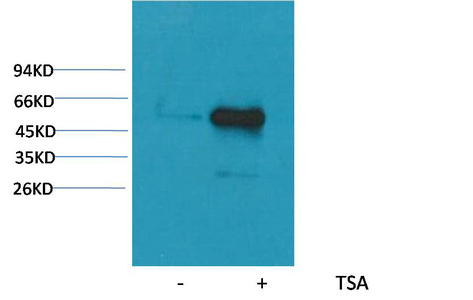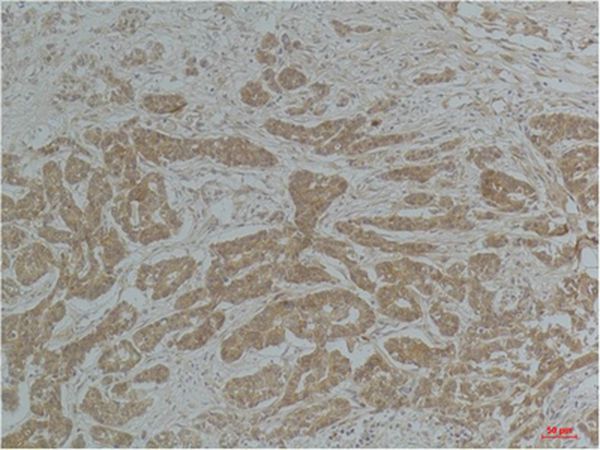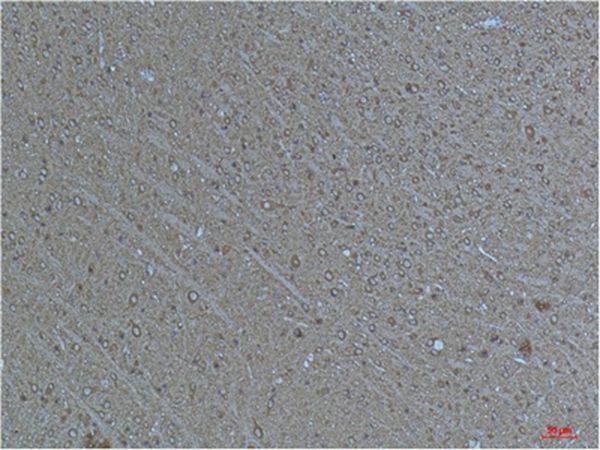


| WB | 1/1000-1/2000 | Human,Mouse,Rat |
| IF | 咨询技术 | Human,Mouse,Rat |
| IHC | 1/50-1/100 | Human,Mouse,Rat |
| ICC | 技术咨询 | Human,Mouse,Rat |
| FCM | 咨询技术 | Human,Mouse,Rat |
| Elisa | 咨询技术 | Human,Mouse,Rat |
| Entrez GeneID | 10376; |
| WB Predicted band size | 52kDa |
| Host/Isotype | Rabbit IgG |
| Antibody Type | Primary antibody |
| Storage | Store at 4°C short term. Aliquot and store at -20°C long term. Avoid freeze/thaw cycles. |
| Species Reactivity | Human,Mouse,Rat |
| Immunogen | Synthetic Peptide |
| Formulation | Purified antibody in PBS with 0.05% sodium azide,0.5%BSA and 50% glycerol. |
+ +
以下是关于 α-tubulin (Acetyl Lys40)(4A8) 抗体的3篇参考文献的简要概括:
---
1. **文献名称**:*Acetylated α-tubulin in microtubules during axonal development and degeneration*
**作者**:Bulinski, J.C., et al.
**摘要**:该研究利用4A8抗体标记乙酰化α-tubulin(Lys40),揭示了神经元轴突发育和退行性病变过程中微管乙酰化的动态变化,表明乙酰化修饰与微管稳定性及轴突运输功能密切相关。
---
2. **文献名称**:*Regulation of ciliary assembly by tubulin acetylation in mammalian cells*
**作者**:Sánchez, I., Dynlacht, B.D.
**摘要**:通过4A8抗体检测纤毛微管的乙酰化修饰,研究发现α-tubulin乙酰化(Lys40)是纤毛形成和功能维持的关键调节因素,并揭示去乙酰化酶HDAC6在此过程中的调控作用。
---
3. **文献名称**:*Microtubule acetylation promotes mitochondrial dynamics and motility*
**作者**:Makino, A., et al.
**摘要**:使用4A8抗体证明,α-tubulin乙酰化(Lys40)通过增强微管稳定性,促进线粒体沿微管的定向运输和动态重塑,进而影响细胞能量代谢和应激响应。
---
注:以上文献为示例性概括,实际引用需根据具体研究检索PubMed或相关数据库获取准确信息。
×